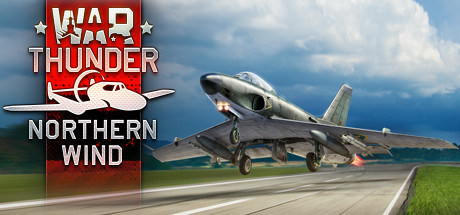
Let’s have a look at Dunkerque, the lead ship of a class of two battleships built in the early 1930s in an effort to modernize the French capital ship fleet to meet the threats posed by the navies of its neighboring countries.
Dunkerque: A Battleship for France at Rank VI
At a glance:
- High top speed!
- Powerful primary gun battery.
- Unorthodox weapons layout.
- Average anti-air protection.
Vehicle History
[expand type=details]
Following the end of WWI and the subsequent signature of the Washington Naval Treaty in 1922, France was faced with a challenging situation for its navy. On the one hand, the pre-WWI dreadnoughts required immediate replacement while on the other hand, the newly signed treaty imposed severe restrictions on the construction of new capital ships. Furthermore, French shipbuilders had to consider various operational requirements for the future design, especially keeping in mind their competitiveness against new Italian and German warships. The ship‘s design changed several times as French engineers experimented with various concepts in order to meet the requirements set out for the program. With the design finalized in 1932, two battleships of what would become known as the Dunkerque class were ordered for construction for the French navy. The lead ship of the class was laid down shortly after in the dockyard at Brest. Dunkerque was subsequently launched in October 1935 and commissioned with the French navy by the end of the following year. During the ship’s brief interwar service, it took part in several naval exercises and visited a number of ports prior to the outbreak of WWII.
At the time hostilities broke out between Germany and France, Dunkerque was primarily tasked with hunting down Deutschland class cruisers, for which the Dunkerques had been purpose-built. Nevertheless, as military action against France became increasingly likely, Dunkerque was ordered to the port of Mers-el-Kébir in spring of 1940 where she would be on standby to oppose any operation by the Italian military. However, after France signed an armistice with Germany in June 1940, British forces launched an attack on the French fleet at Mers-el-Kébir to prevent them falling into German hands. Severely damaging Dunkerque in the process, the warship was eventually towed to Tulon for heavy repairs, which advanced slowly due to a lack of resources. After the occupation of Vichy France by Germany, the crew of Dunkerque scuttled the ship to prevent its capture. Dunkerque remained scuttled in Toulon for the remainder of the war until the ship was finally stricken in 1955.
[/expand]
Meet Dunkerque!
Coming to War Thunder in the French Bluewater fleet tree, Dunkerque features a more modern battleship design representing a radical departure from pre-WWI dreadnoughts. With an advanced artillery system and a unique weapons layout as well as superior mobility, Dunkerque will soon not only become a formidable adversary to face on the high seas of naval battles but will also rightfully claim its place as the new top French Bluewater vessel. Let’s take a look!


Contrary to most other warships in War Thunder, Dunkerque features a truly unique design. Instead of having its armament spread out in a more or less even manner across the whole ship, Dunkerque’s designers opted for a more unorthodox layout, placing the ship’s entire primary battery consisting of eight 13” (330 mm) guns on the front section toward the bow. As a result, this layout always means the ship’s primary guns can fire on a single target and also provides for excellent firing angles in the forward arc.
Dunkerque’s 16 x 5.1” (130 mm) cannons forming the secondary battery are moved aft and spread out between three quadruple and two twin turrets, these guns can especially become useful to fend off smaller vessels, such as destroyers or torpedo boats at close range. Low-caliber AA artillery leaves much to be desired: only five twin mounts of non-automatic 37 mm caliber cannons, and large-caliber machine guns.


Interesting: The ship that initially crippled Dunkerque at the fateful battle of Mers-el-Kébir, HMS Hood, is also the same warship that Dunkerque conducted several patrols against Axis vessels at the outbreak of WWII.
In terms of protection, French naval designers placed significant emphasis on the use of sloped armor plates in order to save on weight while not compromising on the ship’s protection. As such, Dunkerque adopts an all or nothing armor scheme, which sees its main belt featuring 225 mm of plating while the turrets and barbettes are protected by up to 330 and 310 mm of steel plating, respectively. As a result, Dunkerque’s protection remains fairly good when facing enemy capital ships up to heavy cruisers. However, the ship is less capable at going into outright brawls with more heavily armed and armored battleships.

If this happens, Dunkerque has one ace up its sleeve: mobility! Possessing a comparably modest displacement for a battleship and very powerful machinery, Dunkerque can reach a top speed just short of 30 kts (54.6 km/h). This allows it to both chase more nimbler opponents while also enabling it to outmaneuver opponents outclassing her in a naval engagement.

Dunkerque has set course for War Thunder naval battles and is due to dock in ports with the release of the next major update. In the meantime, keep scanning the news section as we continue to release new info on the upcoming update. Until then, calm seas and good hunting captains!
Please note that this vehicle’s characteristics may be changed before it is added to the game.
